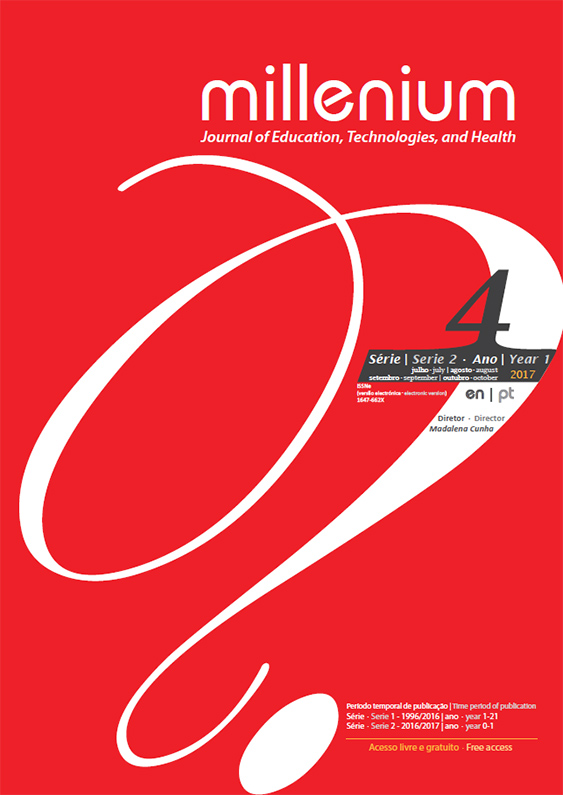Almadrava: Men and sea. Social relationship in a short-term community
DOI:
https://doi.org/10.29352/mill0204.04.00146Keywords:
Fishing, Tuna, Almadrava, AlgarveAbstract
Introduction: Description of the relationship men/sea, on a specific social and life context, in a fishing community temporarily settled in Faro beach, during the tuna fishing period. It was discovered that such a fishing community existed for long decades in this place, where almost 200 families lived only during tuna’s fishing season. This community only had limited and rudimentary resources, based exclusively on human strength. Nevertheless, they developed their own rituals, beliefs and way of living. Now everything is almost extinct.
Objective: Report the specificities of the spatial organization and socio-economic relations of this Armação, encouraging the generational continuity, the awareness of this disappeared heritage, its valorization and the awakening of collective memory.
Methods: The participatory action and the qualitative methods were used, elaborating unstructured interviews, privileging the direct contact with those who lived in the Armação. The criteria used to select the interviewees consisted of lucidity, gender, social hierarchy and geographical origin.
Results: Show the existence of a socioeconomic hierarchy that translated into a physical hierarchy; the registration and dissemination of the theme facilitates access to information.
Conclusions: This paper is a remark to the authorities and stakeholders to preserve the collective memory and, an awakening of minds and consciences, influencing general society in the sense that it will be an alert to a value that, in general, has been lost and forgotten.
Downloads
References
Batista, N., & Gonçalves, M. M. (2017). Ritual of blessing the tuna fishing nets in Algarve (Portugal), between the 30’s and 60’s (pp. 47–54). Presented at the SHARING CULTURES 2017: 5th International Conference on Intangible Heritage, Barcelos: Green Lines Institute for Sustainable Development.
Brito, J. A. G. de. (1943). Pesca de Atum.
Florido-Corral, D. (2013). Ethnological Values and Opportunities for stablishing a Heritage Policy around Tuna-trapping in Andalusia (Spain). International Journal of Intangible Heritage, 8, 55–70.
Franco, M. L. (1947). A pesca do atum na costa do Algarve: achegas para a sua história. Faro.
Instituto de Conservação da Natureza e Florestas. (n.d.). Zonas protegidas e zonas húmidas (RAMSAR) de Portugal [Página]. Retrieved June 20, 2017, from http://www.icnf.pt/
Oncescu, J. M. (2015). Rural restructuring: community stakeholders’ perspectives of the impact of a pulp and paper mill closure on community relationships. Rural Society, 24(2), 177–199.
Prudêncio, R. (2003). A pesca do atum na costa central do Algarve nos séculos XIX e XX : empresas e armações de pesca. In Anais do Munícipio de Faro, 2003-2004 (Vol. 33–34, pp. 200–235). Faro: Câmara Municipal Faro.
Santos, L. F. R. (1989). A pesca do atum no Algarve.
Serra, G. G. (2006). Pesquisa em Arquitetura e Urbanismo: Guia Prático Para o Trabalho de Pesquisadores em Pós-graduação. São Paulo: EdUSP.
Shaffril, H. A. M., Abu Samah, A., & D’Silva, J. L. (2017). Climate change: Social adaptation strategies for fishermen. Marine Policy, 81(Supplement C), 256–261. https://doi.org/10.1016/j.marpol.2017.03.031
Silva, A. A. B. da. (1891). Estado actual das pescas em Portugal: comprehendendo a pesca maritima, fluvial e lacustre em todo o continente do reino, referido ao anno de 1886. Lisboa: Ministério da Marinha e Ultramar.
Downloads
Published
How to Cite
Issue
Section
License
Authors who submit proposals for this journal agree to the following terms:
a) Articles are published under the Licença Creative Commons (CC BY 4.0), in full open-access, without any cost or fees of any kind to the author or the reader;
b) The authors retain copyright and grant the journal right of first publication, allowing the free sharing of work, provided it is correctly attributed the authorship and initial publication in this journal;
c) The authors are permitted to take on additional contracts separately for non-exclusive distribution of the version of the work published in this journal (eg, post it to an institutional repository or as a book), with an acknowledgment of its initial publication in this journal;
d) Authors are permitted and encouraged to publish and distribute their work online (eg, in institutional repositories or on their website) as it can lead to productive exchanges, as well as increase the impact and citation of published work
Documents required for submission
Article template (Editable format)





